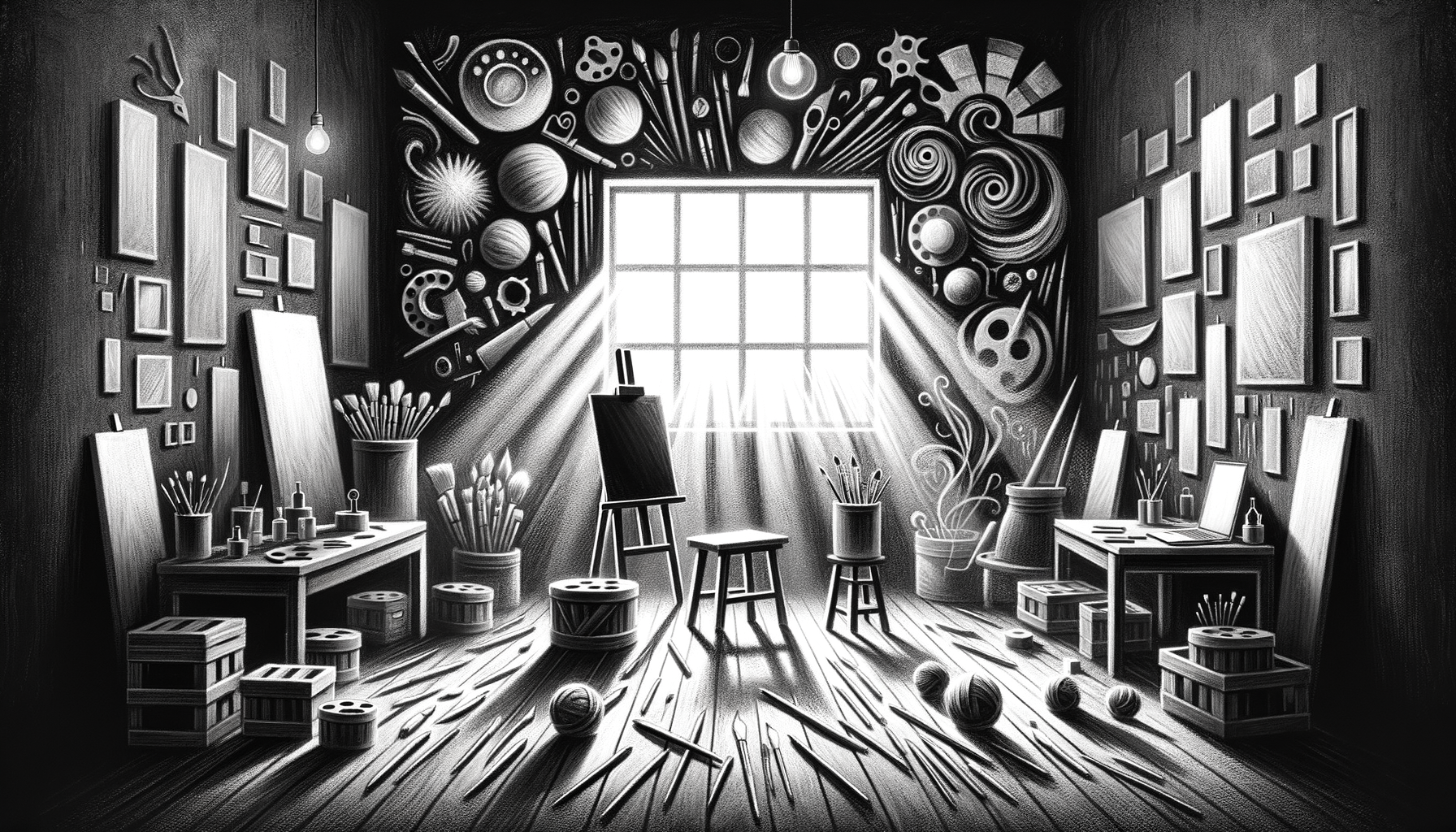There’s something magical about rituals. They ground us in chaos, coaxing creativity out of us like coaxing honey from a stubborn honeycomb. Over the years, I’ve fine-tuned a handful of personal quirks—let’s call them “creative rituals,” though let’s not pretend I don’t sometimes fall victim to procrastinating over baklava-making instead. Whether I’m untangling a tricky idea for an article or basking in the joy of storytelling, these rituals keep my mind open, my pen sharp, and my muse firmly by my side.
Let’s get into it—those little habits that transform the blank page into something alive and brimming with possibility. Who knows? You just might find something worth stealing for your own process.
1. Wake Up with the Greek Sunrise (and Coffee Strong Enough to Raise the Dead)
I once read that Ernest Hemingway woke up at dawn to begin his writing day, and I thought: “Why is it always Hemingway?” In truth, I stumbled into my morning routine after running a boutique hotel, where early-morning chaos ruled supreme. These days, waking up before the rest of the world is sacred. I’ll pull my chair to the tiny balcony of my flat, watch the Athenian sun drench the Acropolis in a golden glow, and nurse a Greek coffee—one so thick you could mistake it for a life decision. The kind of coffee that doesn’t just wake you up but also rattles any lingering self-doubt.
There’s a certain romance to starting the day before the buzz of car horns and chatty strangers fills the air. It’s the calm before life rushes in, a small rebellion against the modern world’s rush. I don’t write during this time, by the way—that’s critical. This is the time to think, to stare at the pigeons perched on my neighbor’s laundry line, and to let ideas drift in. You know what they say: never chase your muse—it’s like a cat. If you sit quietly enough, it’ll come to you.
2. Channel Your Inner Zorba with a Dance Break
Sometimes creativity stalls. You think, “Oh, I have no new thoughts left in my brain," which, frankly, happens more often than I’d care to admit. But here’s the thing: your body and your brain are secretly in cahoots. When the mind freezes, the body can step in.
For me, that means turning up some boisterous bouzouki music (think of the kind of tune that would make even the shyest crowd clap along) and stomping around my living room like I’m auditioning for Mamma Mia! 3: Dimitri’s Reckoning. There’s a Zorba-like freedom in silly, unselfconscious movement—reminding me, deep down, that life and creativity should both feel a little wild, a little joyous. Want to join in? You don’t need folk music; any song that lifts your spirits will do. Play it loud, let it move through you, and remember that creation often begins with chaos.
3. The Walk of Wonder (and at Least One Curious Encounter)
Did you know that the village of Perissa in Santorini has a stray cat population practically the size of its people? I know this because I’ve greatly annoyed the locals by taking countless detours to greet every feline ambassador during my afternoon writing breaks.
Walks are essential for untangling plots, solving pesky philosophical questions, or—for those less inclined toward existentialism—imagining what you’ll cook for dinner. And in a city like Athens, every stroll brings surprises: a street musician playing an oud, a debate happening at the corner taverna, or an old woman selling freshly baked koulouri (sesame bread rings) while simultaneously scolding her grandson. I call these encounters “breadcrumbs of inspiration.” Humans, after all, are endlessly fascinating. And don’t even get me started on eavesdropping—it’s like people-watching but with dialogue. If writers had superpowers, this would be it.
Pro tip: keep your phone handy, not to zone out but to take notes. Inspiration tends to strike when you’re surrounded by ordinary, extraordinary life.
4. Cuisine Therapy: Cooking as Meditation and Storytelling
There’s a reason Greeks talk about food like it’s an extended member of the family. Cooking, for me, isn’t merely “refueling.” It’s art, therapy, and a metaphor for the messiness and beauty of human connection. When my writing feels stale, I roll up my sleeves, grab some olive oil, and let my frustration knead into a sourdough loaf. Baking? An act of patience. Chopping vegetables? Oddly satisfying for a mind caught in overthinking.
My golden rule is simple: blend ingredients that tell a story. Let’s say you’re making a salad: cucumbers and tomatoes speak of long, hot summers; kalamata olives carry the mystery of centuries-old trees; feta adds that rebellious flair (because what’s life without a little tang?). By the time you sit down to eat, something about the creative block you had crumbles like the crust of a freshly baked bread.
Perhaps it’s symbolic: just like crafting a dish requires trial and error, so does crafting words for a blank page. And much like salt brightens flavors, a bit of struggle enhances the taste of everything you create.
5. Find Humor in the Struggle—and Use It
Creativity, much like relationships, is riddled with awkward phases. You start with excitement; everything feels inspired! But then—inevitably—you hit a snag, or worse, a plateau. You overthink whether what you’re working on is “good enough” and spiral into existential dread quicker than you can say, “Aristotle would never struggle like this.”
Here’s the secret: laugh at it. Lean into a little absurdity, because most “blocks” are like poorly written rom-com misunderstandings—they clear up faster if someone adds a punchline. Need inspiration? Remember the time I thought I was madly in love with someone because they shared their souvlaki with me, only to later realize my obsession could only be explained by their uncanny resemblance to young Colin Firth. (Spoiler: truly Colin Firth-looking people are rare. Cherish their memory, then move on.)
Humor breaks tension. Whether you’re stuck on what to write or navigating thorny personal challenges, a good laugh reminds you to get on with it. Creativity isn’t about perfection—it’s about progress, which might look clunky and messy but gets the job done.
6. Build a “Temple of Inspiration” (That Travels with You)
I have a small journal that lives on my nightstand, filled with half-thought-out ideas, snappy one-liners, and the occasional philosophical rant that could make Nietzsche roll over in his grave. I call it my “Temple of Inspiration.” But here’s the real truth: any space, physical or mental, can become your temple. A nook at a cafe, a shady bench in a park, or even the quiet hour before you drift off to sleep.
Whether I’m in Athens, London, or perched on a terrace overlooking the Cretan sea, I recreate this temple wherever I go. It’s less about the place and more about honoring the moment—a time to scribble, reflect, or simply dawdle in delicious daydreams. Creativity loves a little reverence, after all.
In Closing: Let Rituals Bring You Joy
If creativity feels like hard work (and it often does), rituals remind us that it can also be fun. Whether I’m dancing with abandon to old folk songs, gossiping with stray cats, or writing alongside the sunrise, these habits center me in joy, curiosity, and the messy beauty of life itself.
So, create your rituals. Make them yours and make them quirky—whether it’s brewing the same cup of coffee every morning or walking the same street at dusk. Creativity isn’t just for artists; it’s for anyone navigating love, relationships, or their next big idea. The world is full of inspiration, my friend. Go find it—and while you’re at it, make sure your coffee is strong enough to raise the dead. You’re going to need it.




















